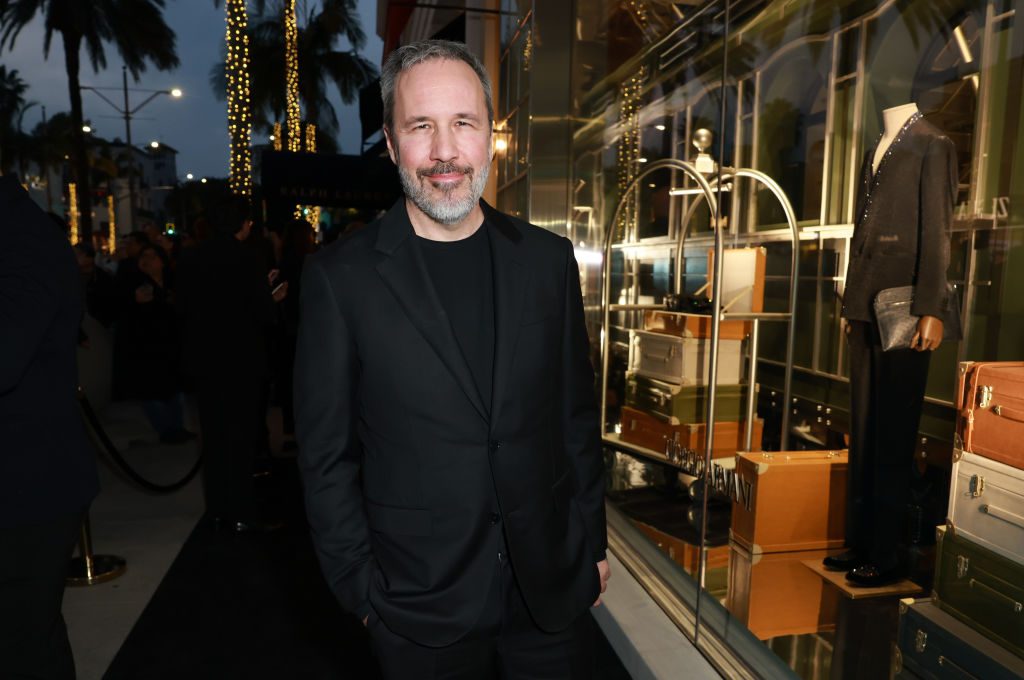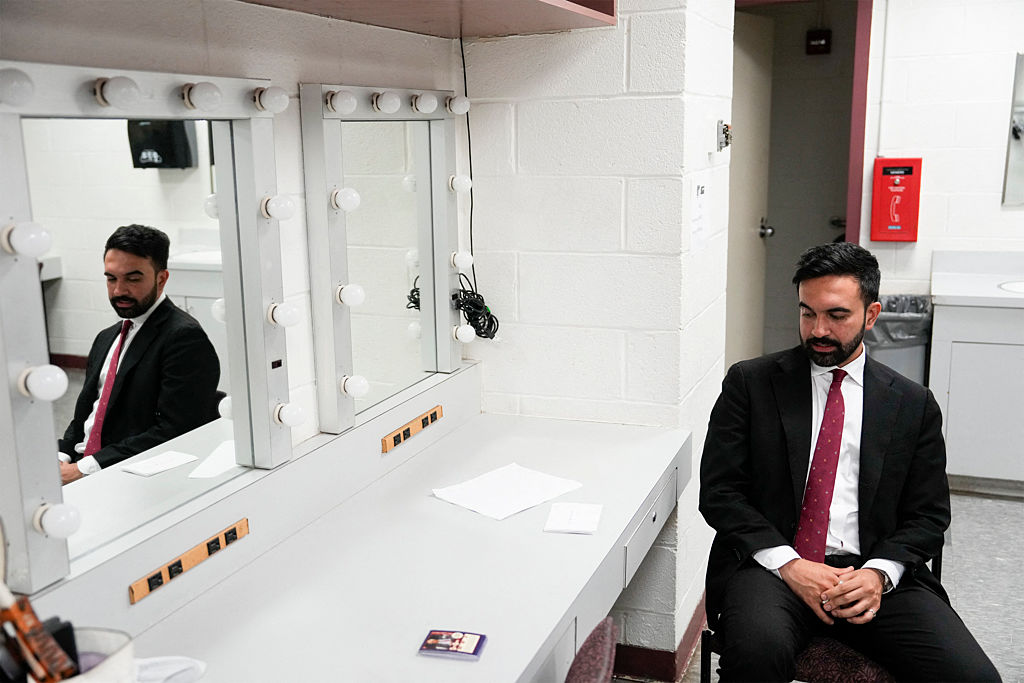Welcome to Thunderdome! Ron DeSantis got in on the Barbenheimer week by setting off an atomic bomb of his own inside his campaign, with massive cutbacks in staff. Less than a month away from the first presidential debate, and the seven candidates who’ve made it still don’t include the former vice president, Mike Pence. And could Hunter Biden’s legal chaos be a prelude to impeachment or a justification for Joe stepping down from a re-election run? Listen and subscribe to the latest Thunderdome podcast where we discuss all of the above — and Francis Suarez’s mysterious flower-shop benefactor.
The DeSantis path back: normalcy?
In July 2007, the one-time frontrunner for the GOP nomination, John McCain, had to lay off eighty campaign staffers, including his campaign manager and chief advisor, and shift many of those remaining to unpaid roles. The odds were stacked against him, with paltry fundraising and a then-dominant Rudy Giuliani, a New York celebrity candidate if there ever was one. McCain was even trailing behind Fred Thompson in some polls. He deployed a favorite line: “In the words of Chairman Mao, it’s always darkest before it’s totally black.”
How McCain came back from this is moment to win is a story both of taking advantage of others’ mistakes, and of returning to the kind of shoestring insurgency campaign effort that he’d used eight years earlier. But it also took a string of good luck. Mike Huckabee’s surprise popularity confounded Mitt Romney in Iowa, Giuliani botched the abortion issue and, bizarrely, decided to dodge early states to focus on Florida, and McCain’s debate performance and focus on national security turned things in his favor, winning the nomination in a major comeback.
DeSantis is not in the same position at the moment, by a long shot. His super PAC in particular has plenty of money to spend on his behalf. But he has to avoid the mistakes of two other gubernatorial campaigns that flamed out early without any opportunity to come back — Rick Perry in 2012 and Scott Walker in 2016.
Perry flamed out because of disappointing debate performances — you can listen to my recent interview with the former Texas governor here — but Walker’s problem was money, and far more comparable to DeSantis’s situation. Facing the prospect of having to run his own shoestring effort as his polling slid and hard dollars dried up, Walker dropped out instead. He wasn’t right enough for conservatives (who ended up with Ted Cruz), moderate enough for the business types (John Kasich), or charismatic enough for the populists (Trump, obviously). Because he was neither hot nor cold, the voters spat him out of their mouth.
DeSantis’s path back seems clear: a slimmed down campaign that leans away from being too online — which they can’t execute as well as Vivek! — and back toward the issues which made him such a force in his first administration. We’re a little more than a year removed from when DeSantis was on stage surrounded by boxes of diapers and other baby gear, promoting the passage of a permanent sales tax exemption for diapers, strollers, cribs and other items for families. It’s steps like these which made him so popular, not the focus on the more online debates about wokeness.
DeSantis has proven that he’s the second choice of a lot of real Trump voters — and that’s fine. But he also needs to present an alternative to the other candidates in the race, stuck in single digits, if he wants to make this a real contest with the other Florida Man. A blend of populism and normalcy may be just what this campaign needs.
How much does Hunter matter?
Obviously Hunter Biden is not the president, or even a politician, and his crimes prior to the 2020 campaign where viewed mostly as a sideshow. But the latest experience in Delaware seems to be of a different flavor, one which exposes just how messy things have gotten for the Biden legal team and the DoJ when an uncooperative judge decided not to be a rubber stamp.
On MSNBC this morning, New York Times chief White House correspondent Peter Baker noted the shift in media attention away from accepting a frame that this was just a loving father supporting a troubled son, towards acknowledging that there’s more going on in this story:
“I think now of course it’s been a few years since then, more information has come out, more allegations have been made, many of which of course have not yet been proven or confirmed. I think that narrative is a little harder to make right now, and so for President Biden, it’s not just about a wayward son, but about whether or not he himself had something to do with his wayward son’s business dealings, and that’s still an open question…
“The current president said that he never had even discussed business with his son. The White House press secretary this week changed that formulation a little bit to say he was never in business with his son. That’s a little bit different than what President Biden has said in the past. And we’ll see where it plays out.”
The media’s attitude toward the Hunter storyline will be telling. The more aggressive the New York Times, Washington Post, CNN and others are, the more they indicate a feeling that there’s something bad enough behind all of this that it could seriously hurt Biden’s chances at re-election. When the legacy media turns on a Democrat, that’s almost always the underlying reason: they’re worried he could lose.
Francis Suarez’s China flower shop cash
Well what have we here: the Miami Herald reports:
“A complaint filed with the Federal Elections Commission Tuesday accused an online artificial flower vendor of illegally funneling half a million dollars from an unidentified source into a Super PAC backing Miami mayor Francis Suarez, who is seeking the Republican nomination for president.
“In its complaint calling for an FEC investigation, the Campaign Legal Center, a non-partisan watchdog organization, alleged that PassionForest LLC — a small online vendor founded in 2021 — appeared to be a straw donor, illegally masking the identity of whoever was behind a $500,000 contribution to SOS America in October 2022.
“Incorporated in Delaware in November 2021, PassionForest has no online presence other than an Amazon storefront listing a Chinese business address, which operated for only eleven months before making its one major political contribution, according to the complaint.”
Perhaps $500k is the price it takes to ensure the Miami mayor never accidentally learns what a Uighur is?
One more thing
If you want some perspective on age in politics, a subject which has been highly discussed this week given the senility of Joe Biden in his meeting with Israel’s president and his frail walk up the short steps of Air Force One, and the frozen moment for Mitch McConnell in his Senate press conference, keep in mind the level of dominance by the baby boomers and even older Americans in positions of power in the country. This Axios chart shows the current make-up of Capitol Hill: 54 percent of the Congress was born before 1964. The average age of a member of the House is fifty-eight, and the average for a member of the Senate is sixty-four. No wonder America feels like a country caught up in nostalgia instead of looking to the future.

























